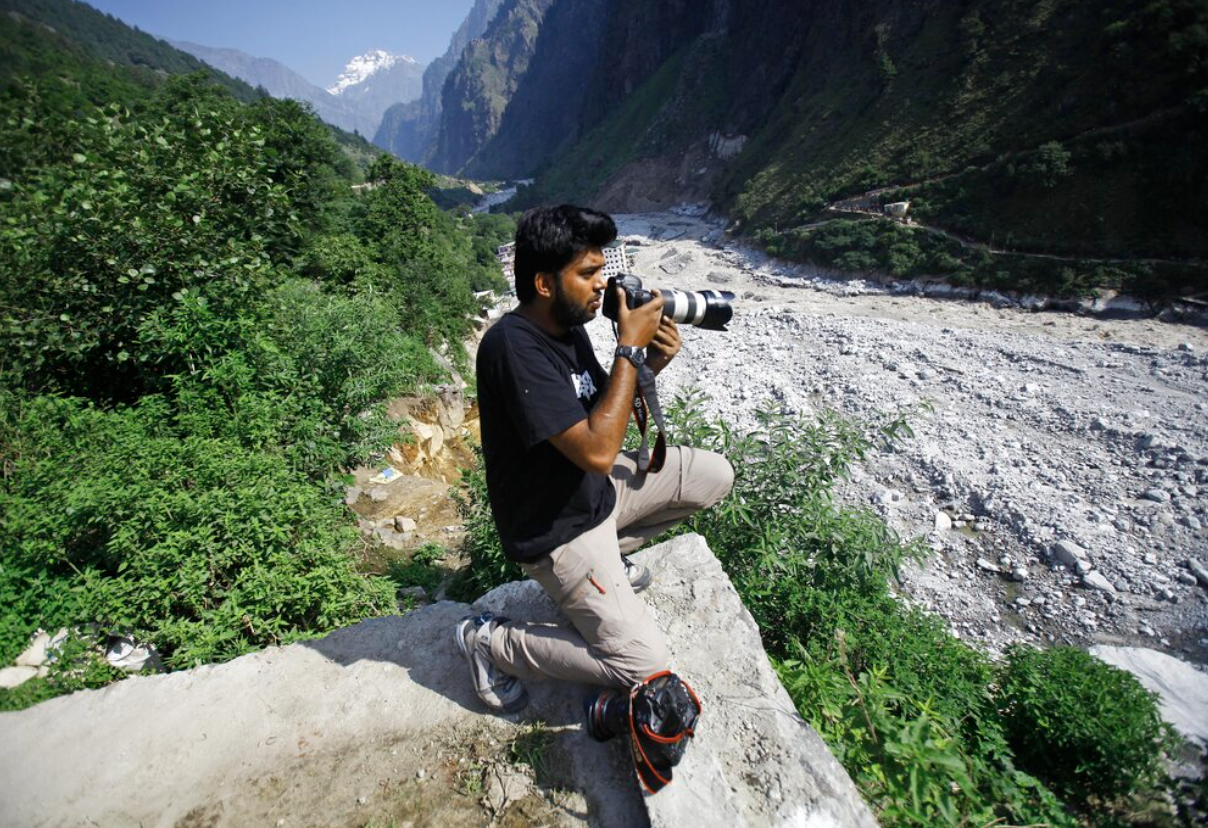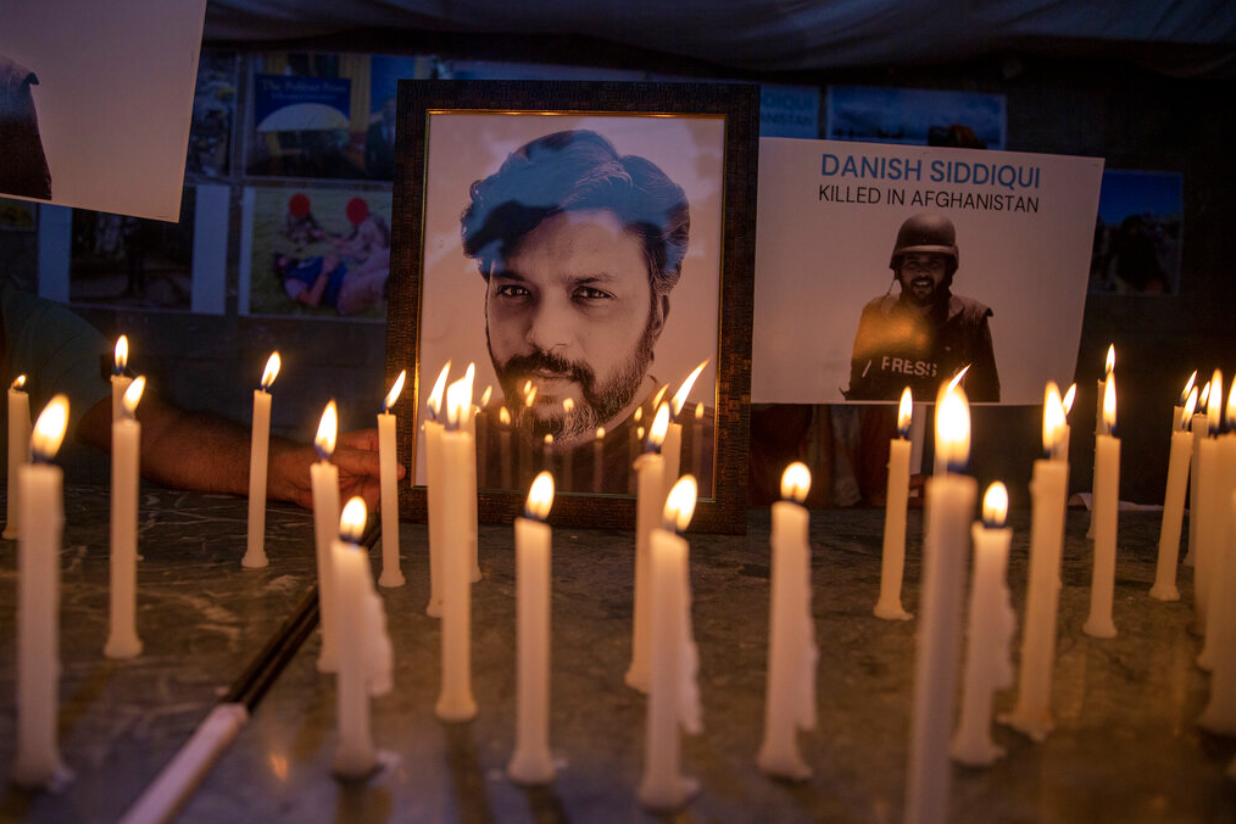Danish Siddiqui’s Parents Take the Taliban To Court
Reuters photographer Danish Siddiqui covering the monsoon floods in Govindghat, India, Saturday, June 22, 2013. Photo: Rafiq Maqbool/Associated Press.
The family of Reuters photojournalist Danish Siddiqui filed a formal complaint with the International Criminal Court on Tuesday, a year after he was killed in Afghanistan. The family is demanding an investigation into his killing, which is seen as the fault of high-level commanders and leaders of the Taliban.
The 38-year-old Pulitzer Prize winner was on assignment in Afghanistan last summer when he was killed on July 16 during a military confrontation between the Afghan government and the Taliban insurgents.
Siddiqui was based in New Delhi and went to cover the Taliban campaign for Reuters as long standing allies like the United States withdrew from the 20-year-long war in Afghanistan. The photographer was embedded with the Afghan Special Forces last year when he was killed near the Pakistan border.
According to Avi Singh, the attorney for Siddiqui’s parents, Siddiqui’s family is seeking legal action against the Taliban at the Hague-based ICC on the grounds that the group targeted and killed their son because he was a photojournalist and an Indian national.
Specifically, the family is suing the Taliban on the grounds that they committed war crimes and crimes against humanity for their treatment of Siddiqui after he was captured by them. The complaint filed by Singh on behalf of Siddiqui’s family was sent to ICC prosecutor Karim Khan and its Victims and Witnesses Unit.
The family is also seeking support from the Indian government for an independent and impartial investigation into Siddiqui’s death. India is currently not a signatory to the Rome Statute which established the International Criminal Court.
“It is important to look for justice,” said Omar Siddiqui, the deceased journalist's brother.
Prior to his death, Siddiqui had been a journalist for Reuters for over 10 years. The photojournalist received his Pulitzer Prize in 2018 for capturing the violence Rohingya refugees faced in fleeing Myanmar. His work was described as “shocking photographs that exposed the world to the violence occurring in Myanmar.”
A spokesperson for Thomson Reuters said “we are deeply saddened by the loss of our colleague Danish Siddiqui. Danish was an outstanding journalist and a much-loved colleague. We are continuing to honor his memory.”
On July 17th, 2021 candles were lit in New Delhi after Danish Siddiqui’s passing in Afghanistan. Photo: Altaf Qadri/Associated Press.
A commander of Afghanistan’s Special Operations Corps who hosted Siddiqui said that he was mistakenly left behind when two commandos withdrew from Spin Boldak, a town near the Afghanistan-Pakistan border that they were trying to take back from the Taliban.
The Taliban denied that they captured and executed the photojournalist. When Reuters asked two Taliban spokespersons to comment on the legal action, they did not respond. However, in August of 2021, Taliban spokesman Zabihullah Mujahid denied that Siddiqui was captured and executed and that the assertions of the Afghan and Indian governments were “completely wrong.”
Siddiqui was the first foreign reporter to be killed in Afghanistan after the United States and other international powers left the region in May. His death adds to the growing concern for journalist’s safety globally. According to the United Nations, 65 journalists, media professionals and human rights defenders were killed in Afghanistan from January 2018 to January 2021.
“Countries supporting the peace process should press for firm commitments from all parties to protect journalists, including women, and uphold the right to free expression in Afghanistan,” said Patricia Gossman, associate Asia director for Human Rights Watch.


